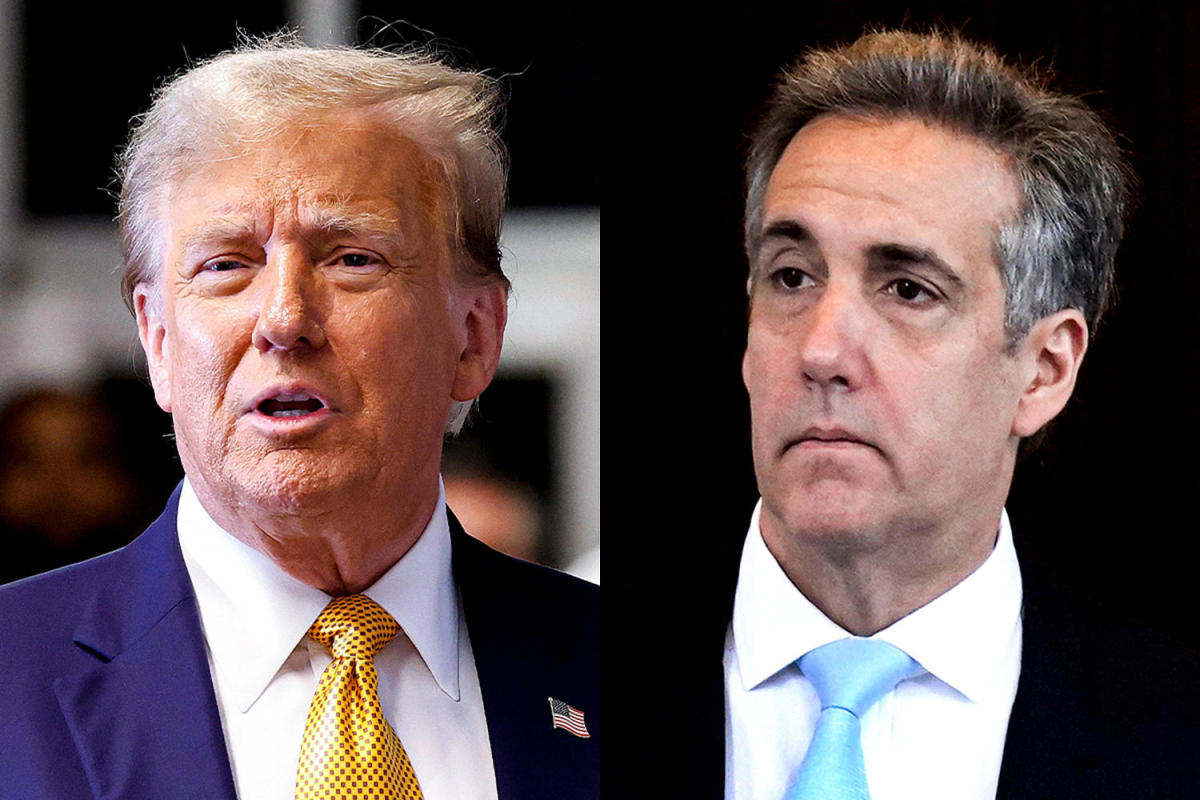WASHINGTON — The Supreme Court on Monday rejected disbarred lawyer Michael Cohen’s last-ditch effort to revive a civil rights claim against his former boss Donald Trump.
The justices upheld lower court rulings that said Cohen could not pursue his accusation that then-President Trump and other officials violated his rights by placing him in solitary confinement because he had written a tell-all book.
In 2020, Cohen served a three-year prison sentence on several charges related to work he had done for Trump.
He was under house arrest due to the Covid-19 pandemic but was sent back to prison after refusing to sign a form that would prevent him from speaking to the press or posting on social media.
After 16 days of solitary confinement, a federal judge ordered Cohen’s release, finding that officials had retaliated against him on freedom of speech grounds.
Cohen subsequently sued Trump and other officials, seeking damages for, among other things, the alleged violation of his right to be free from unreasonable searches and seizures under the Fourth Amendment to the Constitution.
He recently told NBC News that if Trump is elected to a second term in November, he “will not stop locking people up” unless there is a significant deterrent.
But constitutional claims against individual federal officials are notoriously difficult to bring due to a series of Supreme Court rulings.
The court has made it nearly impossible to bring constitutional claims against individual federal officials in recent years, reversing a 1971 precedent called Bivens v. Six Unknown Named Agents of the Federal Bureau of Narcotics that first established them allowed.
In a 2022 case called Egbert v. Boule, the Supreme Court effectively put “Bivens claims” on life support in a ruling dismissing charges against a Border Patrol agent.
As NBC News reported last year, the 2022 Egbert ruling has been cited hundreds of times by lower court judges in rejecting Bivens claims in cases involving a wide range of alleged unconstitutional conduct.
A federal judge in New York and the 2nd Circuit US Court of Appeals both highlighted the recent Supreme Court ruling rejecting Cohen’s claims.
Unless Congress passes legislation allowing some form of Bivens claims, there are few legal avenues to seek liability when federal officials, including thousands of law enforcement officers, commit unlawful acts.
This article was originally published on NBCNews.com






